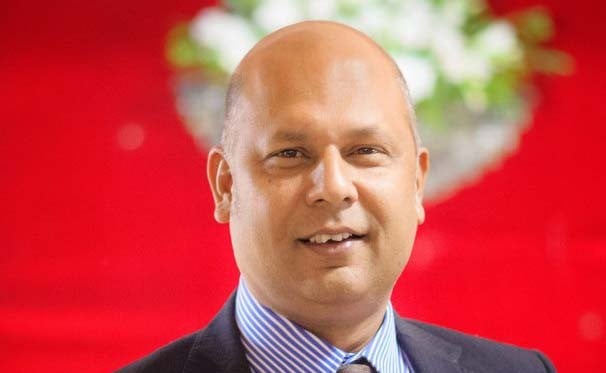

Harris Khalique has won the UBL-Jang Literary Excellence Award for poetry for his Urdu collection ‘Mailay Mein’. He is not in favour of writing forewords for poetry collections since "poetry speaks for itself". This time however, on the insistence of the publisher perhaps, he has written a short foreword in which he says, "It seems that every fresh crop of writers in our country, in its youthful earnestness and enthusiasm, raises some fundamental questions as if they are being raised for the first time… Speaking of poetry, of course it could only be appreciated on its aesthetics and poignancy. But poetry is inspired by both the anguish within and the larger human struggle being waged outside. To me, these two are complementary and not contradictory to each other."
Mailay Mein is divided into four sections and each section is preceded by a couplet of Mirza Ghalib. The first section seems to reflect the "anguish within" while the second represents the "larger human struggle being waged outside". The third section is devotional poetry and the last section is reserved for ghazals which, the poet admits, is not his forte but being an Urdu poet he had to perform the ritual of composing a couple of ghazals for his new book.
What is strikingly unique in the poetry of Harris Khalique is that most of his poems are built on the pattern of a short story: there is a certain set-up, a protagonist, a series of seemingly insurmountable obstacles, and the hero’s relentless struggle to overcome them. Be it the character of Sazawar Bibi who started her struggle in the previous volume and carried it through the present collection or the formidable character of Ghulam Azam Musalli, who, with his flat nose, thick lips and irritating pimples in his sweating loins and armpits, faces the tragedy of the death of his only child but can’t even mourn properly as he has to attend the landlord early next morning.
Similar is the story of Nazeer Alam the singer who spent a lifetime learning and mastering the subtleties of ascending and descending notes of classical raags, only to realise at the end there is nobody to appreciate his art.
Harris Khalique recited this poem before a spell-bound audience at the Awards Ceremony in Lahore. The jury comprised Intezar Hussain, Arifa Syeda, Anwer Mooraj, Anwaar Ahmed, Asghar Nadeem Syed and Asif Farrukhi.
After the ceremony, in an informal get-together, he was asked if he took this award, or any such award, seriously. His clear and candid answer was, "It is natural to feel some sense of fulfillment with the recognition of one’s contribution. Particularly, for this award, the panel of judges was truly prestigious and their critical appreciation is reassuring." However, he said there are "mountains to climb and rivers to cross before I can even start imagining myself leaving an indelible mark on such a splendid landscape of Urdu poetry which has thrived over the centuries."
He does feel proud to "be a small part of such a rich and thriving tradition".
Kahlique writes in other languages too, perhaps much more in English than in Urdu, if his prose and columns are included. How does he define himself, an Urdu poet who writes in English or an English writer who composes poetry in Urdu as well? "I see myself simply as a writer. In the realm of poetry, I am essentially an Urdu poet who also writes in English. It is like our literary predecessors writing in Persian. That is replaced by English for our generation and perhaps for generations to come. Also, at times, I would compose a poem in Punjabi or sometimes virtually a couple of lines in Sabk-i-Hindi of the Persian language. Ironically, due to this hierarchy of languages in the world and the disparity among nations, I am known more for my English verse outside the Urdu literary world. This is due to my English poems having been anthologised in Europe, North America and South Asia."
He admits he in prose, he writes a lot more in English and very regularly as well. "Not all of it is creative writing though," he says. .
Should the creative artists represent their social and political environment or should they remain focused on their inner world, I ask. "I can only speak of myself; for me, the two worlds are intertwined. It is not an ‘either-or’ situation; it is both. We cannot compromise on the aesthetics of any work of art, be it a love poem or a social poem. There is a difference between sloganeering and poetry. However, poetry devoid of any sense of history, society, politics and culture remains limited. Politics is not just about current affairs and elections; it is about taking positions in life. Even not taking a position is a position. For me, a love poem is also a political poem and vice versa," he says.
Harris Khalique has this fascination with character-based poems which are appreciated more. Is it an inspiration from the fiction he reads or is there some other reason for using this technique? He says he hasn’t thought about it too much. "But it isn’t just an inspiration from fiction. I do not think of a technique consciously. Form and technique follow the idea and subject of the poem. I relate to human beings as individuals and human society as a collective at different levels." However, both personal and the social angst, pain, suffering or happiness get better depicted when we build the narrative around an individual, he says.